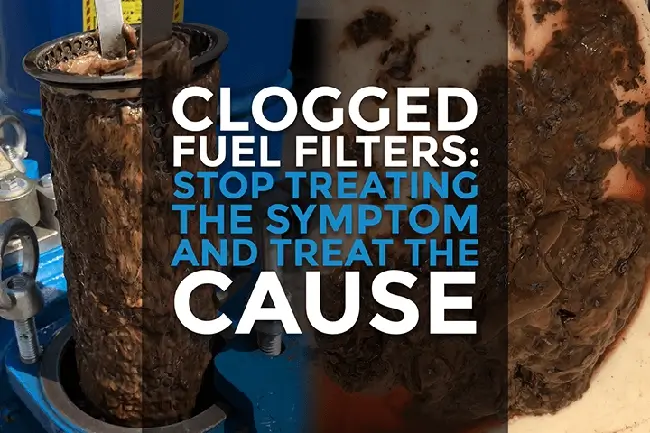While on the water, fuel filters can clog at any moment when an appropriate fuel maintenance procedure is not in place.
Clogged filters can cause engines to "choke", preventing fuel from powering the engine(s) and leaving vessels dead on the water.
If replacement filters are not readily available, this simple filter change can derail any further plans you may have had on the water.
What Happens When Filters Clog
When filter clogging occurs on a regular basis, engine operators need to take a look beyond just the filter media to get a better understanding of what may be causing this issue.
Fuel contamination often causes excessive filter clogging and may also show itself through short filter lifetimes and frequent filter changes.
All of these symptoms are often remedied through performing filter changes, however this only acts as a “bandage” and does not address the root cause of the poor filter performance.
When developing your marine maintenance plan, it is important to remember just how vital your fuel quality is to your vessel's operability.
What Really Causes Fuel Filters to Clog
Fuel tanks, especially in marine vessels, are susceptible to contamination in a number of ways.
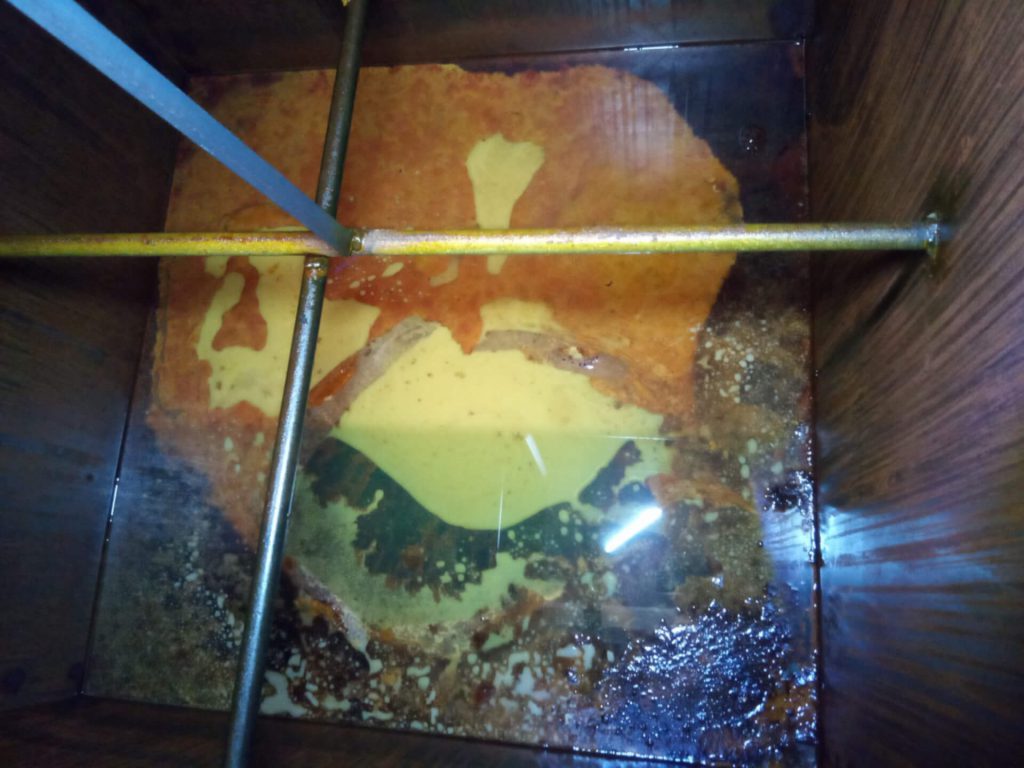
Condensation can bring moisture into the tank, creating a layer of water sitting with the fuel in the tank.
The presence of water in the tank helps to create an environment where “algae” can develop.
This “algae” is actually made up of microbial growth which feed off the hydrocarbons in the fuel, allowing them to proliferate.
The byproduct of the microbial growth is often seen in your fuel filters through the capturing of sludge.
This sludge can quickly overwhelm your fuel tanks if not addressed in a timely manner.
Fuel filters are also often clogged by metallic fragments that come in various forms of ferrous metals.
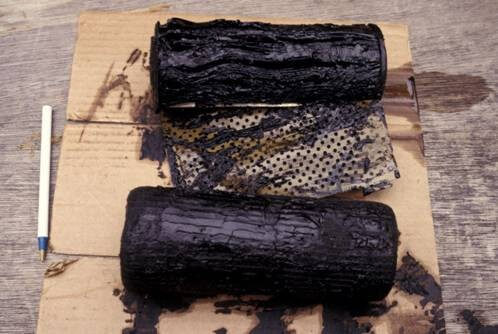
These metals can originate from many sources, but most often it is picked up by the fuel as it is stored in fuel tanks that may be experiencing deterioration.
This deterioration leaves rust and other metals in the fuel, and as the fuel is passed down the supply chain, makes its way through many different fuel supplies.
What Damage Can Fuel Contamination Cause?
Fuel contamination poses a number of risks to the equipment which relies on the fuel being supplied.
Contaminated fuel can not only prevent equipment from being able to run, but it can also cause extensive damage in the critical components which allow an engine to operate as designed.
With fuel filters being able to visibly capture contamination, many equipment operators believe that fuel filters are doing all the work that is needed when it comes to promoting fuel quality.
However, this couldn’t be farther from the truth.
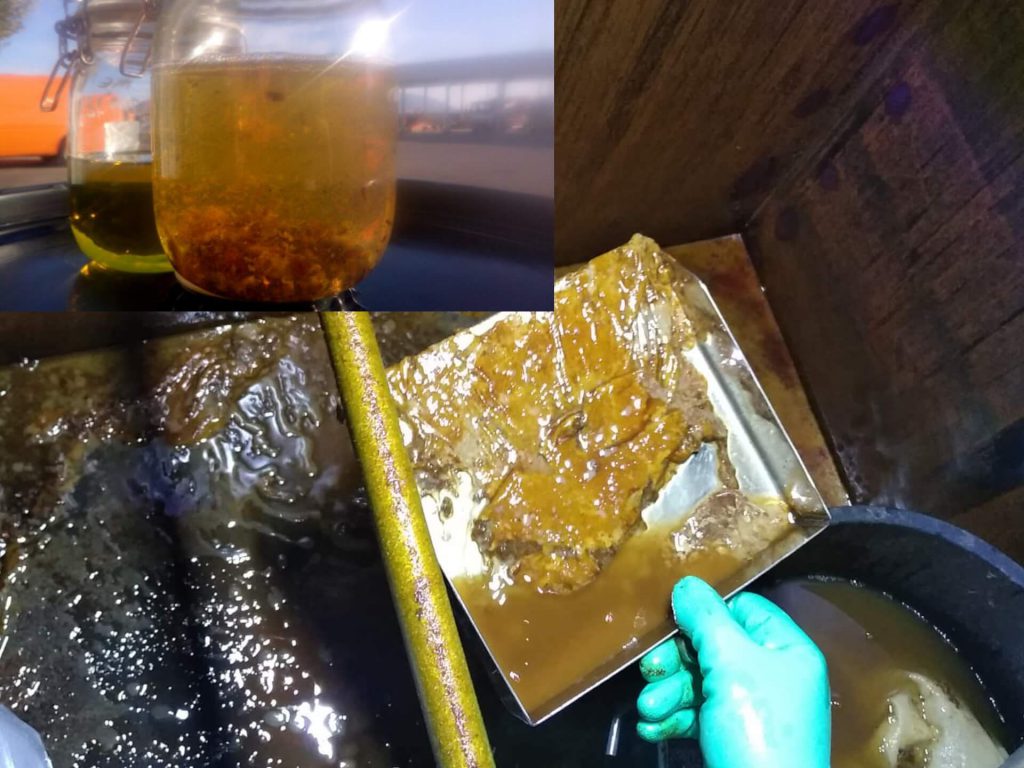
The fuel filters only tell a fraction of the story, and there could be serious contamination that has been brewing within a fuel storage tank for an extended period of time.
This fuel contamination can not only damage the fuel tank itself through rust and corrosion, but it can also cause damage to the equipment relying on the contaminated fuel as an energy source.
Ferrous metals can puncture fuel filters, leaving unfiltered fuel flowing through the filter housing and into the critical components of the equipment being supplied with the fuel.
If the metals are not captured by the fuel filter, these metallic fragments can pose serious risks to equipment operation.
When these microscopic fragments of metal are able to make its way to the injection system of the engine, complete injector failure can occur, leaving behind costly repairs.
Why Other "Solutions" Aren't Working to Remove Contamination
As filter clogging becomes a growing problem, users will search for ways to remediate the issue.
Some of these remediation methods are only “bandages” which don’t do anything to treat the source of the contamination problem.
One solution sounds simple, to carry around and stock additional fuel filters so that they are on-hand and ready to install as needed.
Fuel filters are affordable when compared to other engine consumables, and changing the fuel filters out regularly is seen as a less-costly treatment option.
The issue here is that by undergoing frequent filter changes, nothing is being done to solve the root cause of the filter clogging.
The fuel in the tank will continue to supply contaminants to the filters, and the fuel supply’s contamination problem will continue to develop further.
This will continue until the fuel contamination eventually damages the fuel filter and contaminants are then able to make their way to critical engine components.
Biocides are seen as another solution that is often used with the intent to treat the fuel and remove all contaminants.
As great as this sounds, it is impossible for a mix of chemicals to react with the fuel chemistry in a way that would remove all water, microbial growth, metals and other contaminants.
Even if biocides are able to “kill” the microbial growth that is in the tank, it will not be able to remove the water.
Because water is not removed from the fuel tank, the microbial growth will just proliferate again, leaving users with the same issues they were originally trying to solve.
How Should You Remove Fuel Contamination?
When a fuel tank is contaminated, it is a complicated task to remove or replace the fuel tank that is within the vessel.
Adding more “fresh” fuel to the tank is not a solution either because you are just contaminating the new fuel with the contaminants that are in your fuel tank already.
The most effective solution to your growing fuel contamination problem is through fuel polishing.
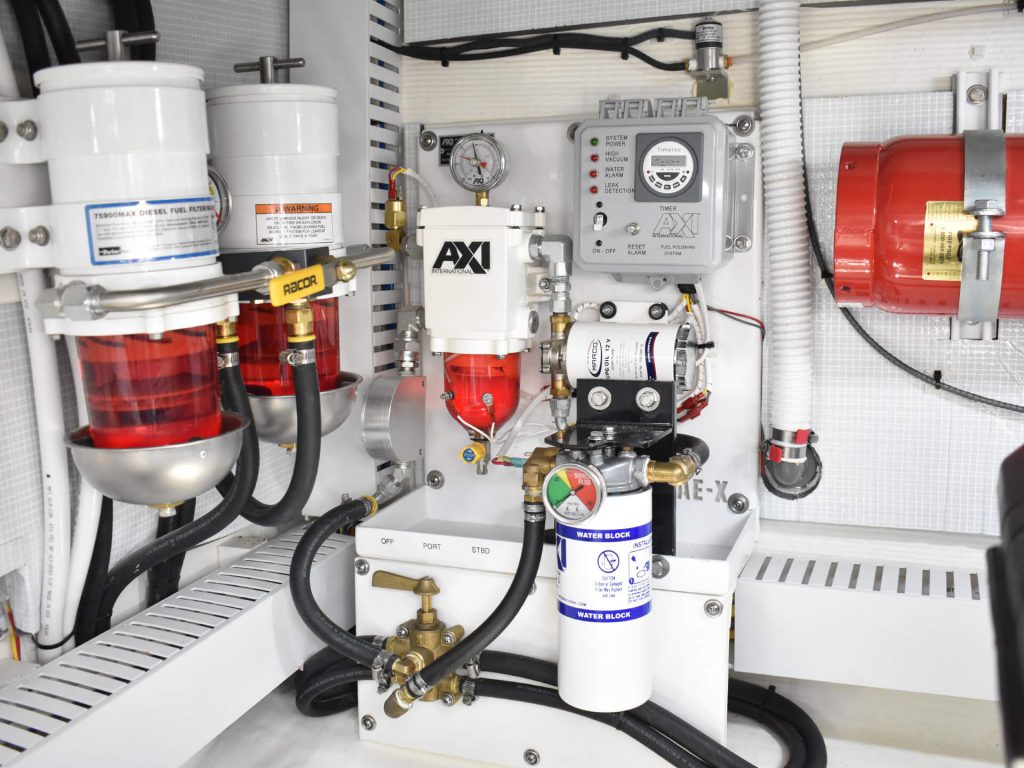
Fuel polishing can be done through a routine fuel servicing using a MTC Mobile Fuel Polishing System, or it can be done regularly with a FPS Compact Fuel Polishing System.
Fuel polishing can effectively remove the bulk of fuel contaminants, and with fixed systems can constantly be working to combat the growth of such contamination in your fuel supply.
All of AXI’s FPS fuel polishing systems also come equipped with the LG-X Magnetic Fuel Conditioner.
This LG-X conditioner can also be installed before your engine filters and is able to both extend fuel filter life & capture ferrous metals, further protecting your engine.
Through fuel polishing, optimal fuel quality can be restored and maintained.
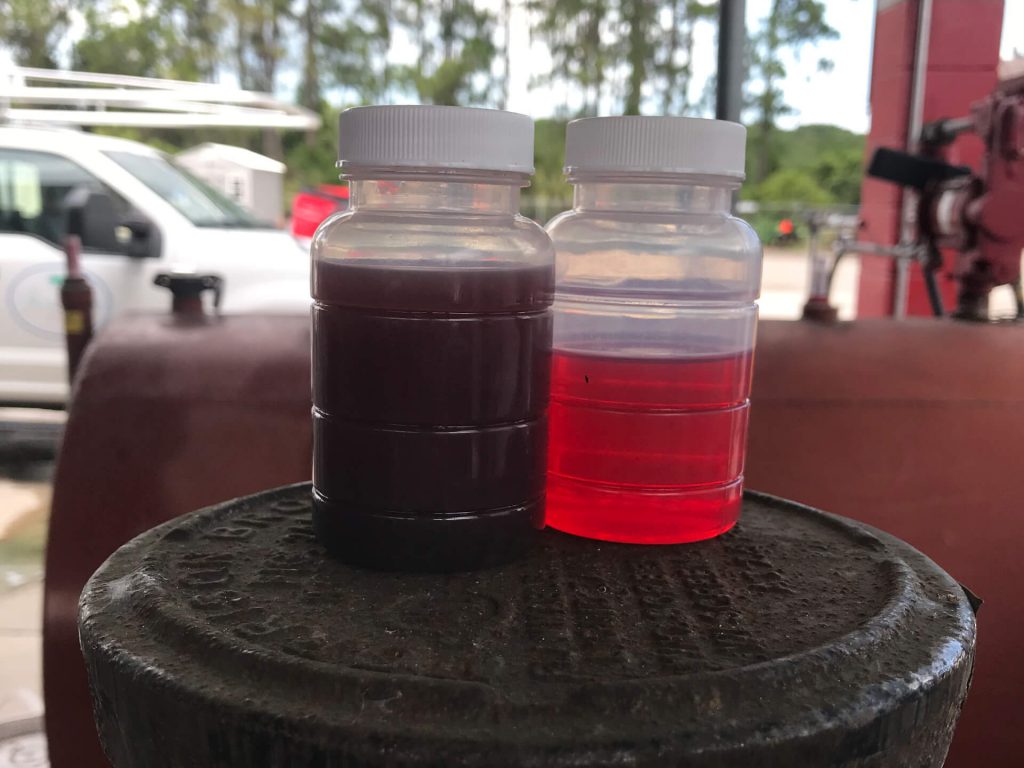
This results in not only an increased fuel filter lifetime, but may also improve performance, efficiency, and long-term reliability.
To learn more about the benefits of fuel polishing, click this link to see how fuel polishing really works.



